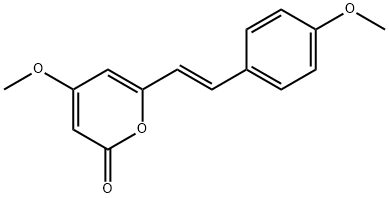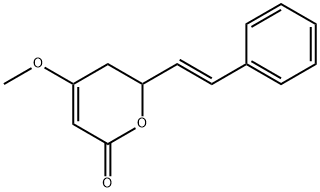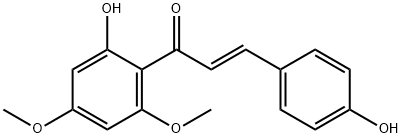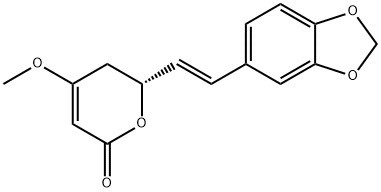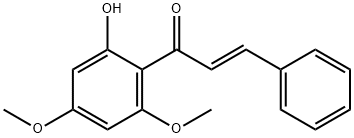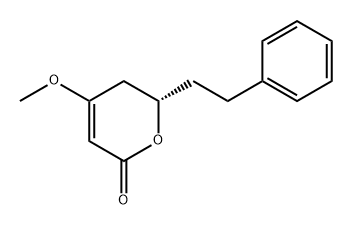Yangonin , BR , 500-62-9
Synonym(s):
4-Methoxy-6-((E)-4-methoxystyryl)pyran-2-one
| Pack Size | Price | Stock | Quantity |
| 1mg | RMB1532.00 | In Stock |
|
| 5mg | RMB3199.20 | In Stock |
|
| others | Enquire |
PRODUCT Properties
| Melting point: | 155-157° |
| Boiling point: | 487.6±45.0 °C(Predicted) |
| Density | 1.325 g/cm3 |
| storage temp. | 2-8°C |
| solubility | Chloroform (Slightly), Methanol (Slightly) |
| form | Solid |
| color | Pale Yellow to Pale Green |
| BRN | 230710 |
| Stability: | Light Sensitive |
| LogP | 1.750 (est) |
Description and Uses
Yangonin is a natural kavalactone from the kava plant, P. methysticum. It enhances the binding of bicuculline at the γ-amino butyric acid (GABA) receptor GABAA at 1.0 μM. Yangonin also binds the central cannabinoid (CB1) receptor with a Ki value of 0.72 μM, but whether it serves as an agonist or antagonist at this receptor remains to be determined. Yangonin blocks the activation of NF-κB by TNF-α. It also inhibits anchorage-dependent and independent growth of bladder cancer cell lines through induction of autophagic cell death (IC50s = 15-59 mg/mL).
A lactone isolated from the Kava plant (Piper methysticum). rokawain, methysticin, dihydromethysticin, yangonin, and desmethoxyyangonin are the six major kavalactones. Kava beverages and other preparations are known to be anxiolytic and are used for anxiety d isorders. a supplements.
Safety
| Symbol(GHS) |  GHS07 |
| Signal word | Warning |
| Hazard statements | H302 |
| Precautionary statements | P264-P270-P301+P312-P330-P501 |
| WGK Germany | 3 |

